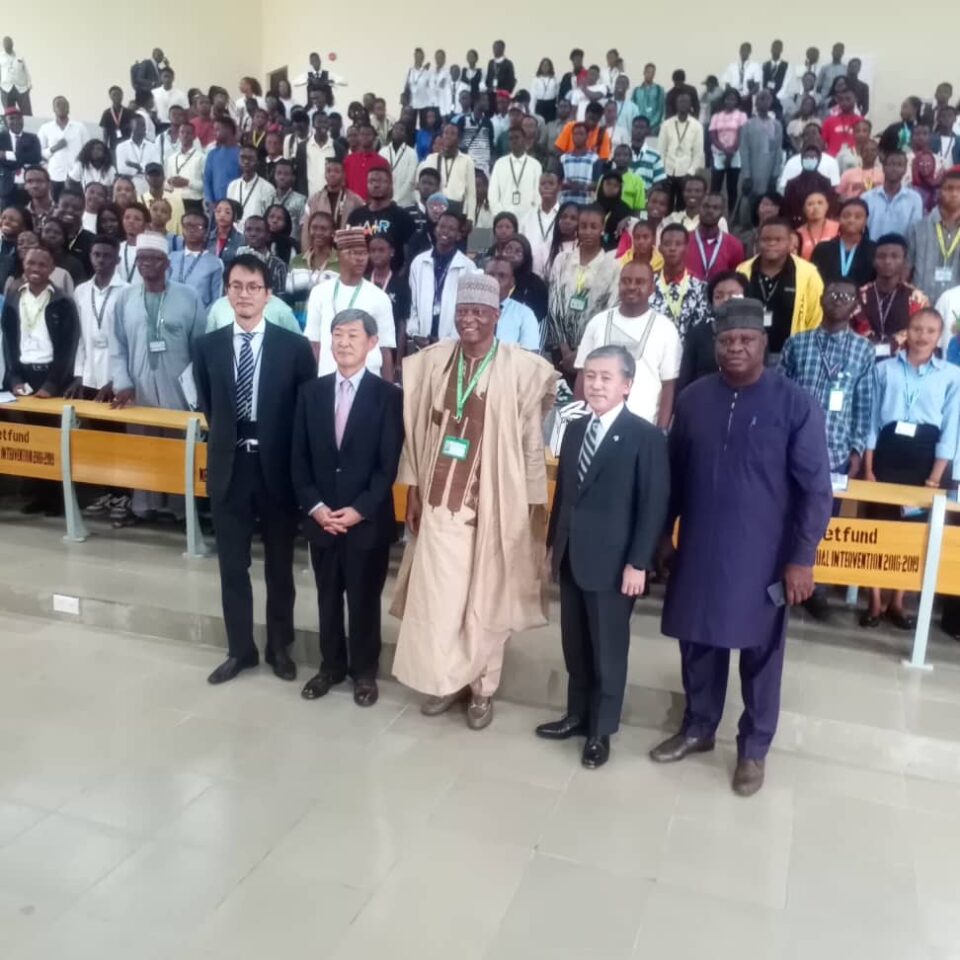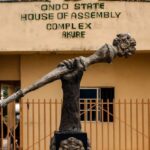By Felix Khanoba
The Vice Chancellor of University of Abuja (UniAbuja), Professor Abdul-Rasheed Na’Allah, says the institution has deepened opportunity for its students to study in Japanese universities through exchange programme.
The VC made this known during the 3rd Japan International Cooperation Agency (JICA) chair, organised in collaboration with the Japanese agency, at the main campus of the university on Tuesday.
He said : “University of Abuja has signed an MoU with two Japanese universities. It covers university’s students exchange, staff exchange, joint visa, and so many other things.”
While saying the exchange programme allows for both short and long period of study in the Japanese universities, Professor Na’Allah advised students who intend to leverage on the scheme to liaise with their lecturers.
Speaking further on the event, which had its theme as ‘Making of Modern Japan’, the Vice Chancellor challenged students to learn from the experience of Japan so that they can position themselves well as future leaders of the country.
“Modern Japan should serve as a great model to Nigeria and Africa. The way they made choices and overcome challenges,” he said.
Explaining the great importance attached to Japan, Professor Na’Allah said Japanese language is now one of the compulsory foreign languages in the institution.
“So you can see many of our students are taking Japanese language but more than that, because University of Abuja wants our students to understand the spirit of Japan, because Japanese politics has helped Japan without (huge) material resources, they are now the second largest economy in the world.
“We think the success of Japan, if we learn its strategies, Nigeria with all the abundant resources, we can be the best in the world.
“Currently, we have over 200 students of our university that are training in order to work with Japanese companies,” he said.
The VC also expressed the readiness of the university to have Japanese industries in the main campus.
“If Japan brings its industries or a company like Toyota, like Honda; currently Honda is in Nigeria, I understand they are in Lagos. Lagos is not the right place for them to come. They should come to our university we will give them land to be assembling (their products) here and work with our Faculty of Engineering,” Professor Na’Allah posited.
On his part, the Ambassador of Japan to Nigeria, Matsunaga Kazuyoshi, assured of support for UniAbuja through adequate scholarship opportunities for students and other programmes.
“The Japanese government offers you the opportunity to learn more about Japan. We offer a variety of scholarships
“For example, the Japanese Government Scholarship Programme” by the Ministry of Education, Culture, Sports, Science and Technology (MEXT), the “ABE Initiative” and “Technical training for Nigerian nationals” by JICA.
“Studying in Japan provides you not only with expertise but also offers you the opportunity to learn about the Japanese code of conduct, such as diligence and punctuality.
” Many graduates who have completed their studies in Japan are now working with the Nigerian Government and
universities, and we hope to see more of them working for Japanese companies in Nigeria in the future.”
In a lecture at the event titled ‘Making of Modern Japan’, Professor Kitaoka Shinichi, Special Advisor to the President of JICA, went down memory lane on how Japan was able to pass through difficult phases to arrive at its present status as an economic giant.
Shinichi said Nigeria also has the potentials to evolve into a developed country.
“Nigeria is very important country because of its big population and the rate of its growth. Not only that, Nigeria is located between the Northern and Southern parts of Africa. Nigeria is committed to democracy and it is in position to bridge the developed countries with the developing countries, ” he said.
In another lecture on ‘Nigeria’s Relation With Asia: Issues and Prospectives,’ UniAbuja’s Deputy Vice Chancellor, Prof. Afaha Philip said the Japan-Nigeria relation has ushered in robust economic development into the country.
Represented by Dr. Eze Ukauwa, Afaha called for the deepening of the relationship, even as he advocated for the presence of Japanese companies like Toyota in the university.
The AUTHORITY reports that the event also witnessed cultural presentation, question and answer session, among others.



